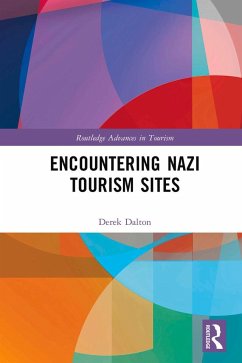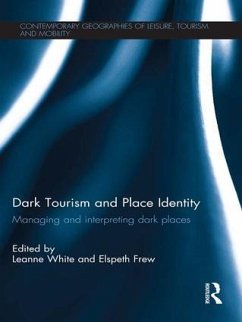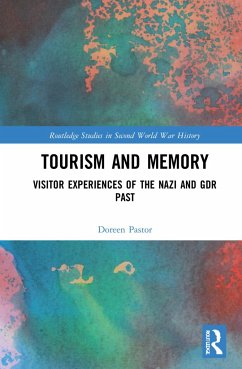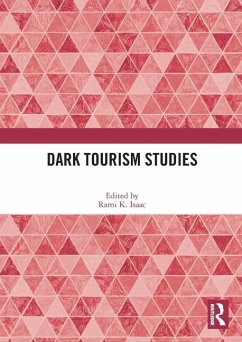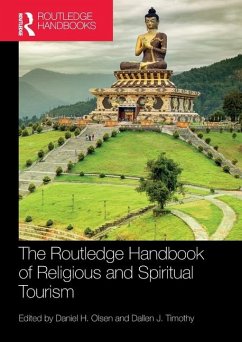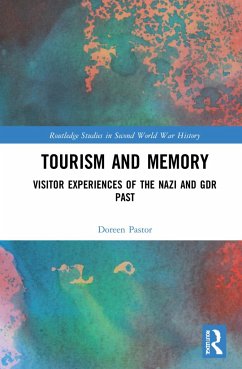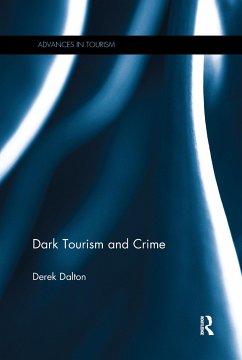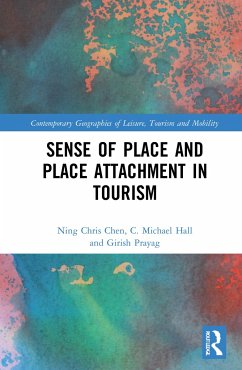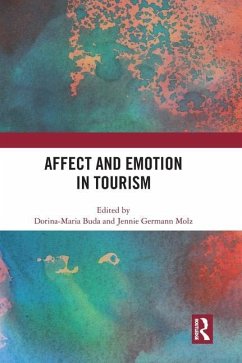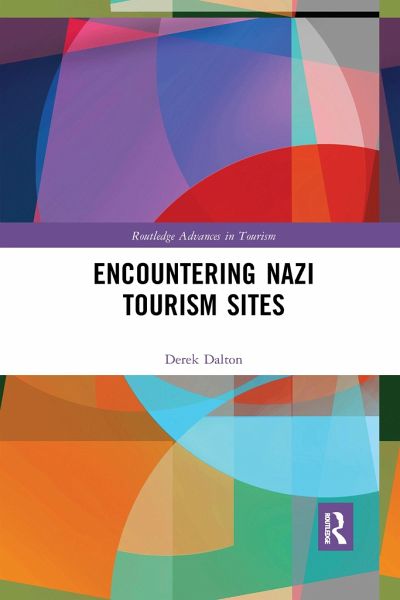
Encountering Nazi Tourism Sites
Versandkostenfrei!
Versandfertig in 6-10 Tagen
45,99 €
inkl. MwSt.
Weitere Ausgaben:

PAYBACK Punkte
23 °P sammeln!
Encountering Nazi Tourism Sites explores how the terrible legacy of Nazi criminality is experienced by tourists, bridging the gap between cultural criminology and tourism studies to make a significant contribution to our understanding of how Nazi criminality is evoked and invoked in the landscape of modern Germany.This study is grounded in fieldwork encounters with memorials, museums and perpetrator sites across Germany and the Netherlands, including Berlin Holocaust memorials and museums, the Anne Frank House, the Wannsee House, Wewelsburg Castle and concentration camps. At the core of this r...
Encountering Nazi Tourism Sites explores how the terrible legacy of Nazi criminality is experienced by tourists, bridging the gap between cultural criminology and tourism studies to make a significant contribution to our understanding of how Nazi criminality is evoked and invoked in the landscape of modern Germany.
This study is grounded in fieldwork encounters with memorials, museums and perpetrator sites across Germany and the Netherlands, including Berlin Holocaust memorials and museums, the Anne Frank House, the Wannsee House, Wewelsburg Castle and concentration camps. At the core of this research is a respect for each site's unique physical, architectural or curatorial form and how this enables insights into different aspects of the Holocaust. Chapters grapple with themes of authenticity, empathy, voyeurism and vicarious experience to better comprehend the possibilities and limits of affective encounters at these sites.
This will be of great interest to upper level students and researchers of criminology, Holocaust studies, museology, tourism studies, memorialisation studies and the burgeoning field of 'difficult' heritage.
This study is grounded in fieldwork encounters with memorials, museums and perpetrator sites across Germany and the Netherlands, including Berlin Holocaust memorials and museums, the Anne Frank House, the Wannsee House, Wewelsburg Castle and concentration camps. At the core of this research is a respect for each site's unique physical, architectural or curatorial form and how this enables insights into different aspects of the Holocaust. Chapters grapple with themes of authenticity, empathy, voyeurism and vicarious experience to better comprehend the possibilities and limits of affective encounters at these sites.
This will be of great interest to upper level students and researchers of criminology, Holocaust studies, museology, tourism studies, memorialisation studies and the burgeoning field of 'difficult' heritage.





